Are you tired of feeling overwhelmed, trapped in the clutches of anxiety? Do you want a life filled with tranquility? If so, let’s find out how to become less anxious.
What Exactly Is Anxiety?
Anxiety is a universal human emotion that can manifest as a persistent and overwhelming feeling of fear, worry, or unease.
However, it’s important to recognize that anxiety is a normal part of life and most people experience it occasionally. When anxiety becomes persistent, excessive and a constant companion, hindering our daily activities and overall well-being, it may indicate an anxiety disorder that requires attention and care.
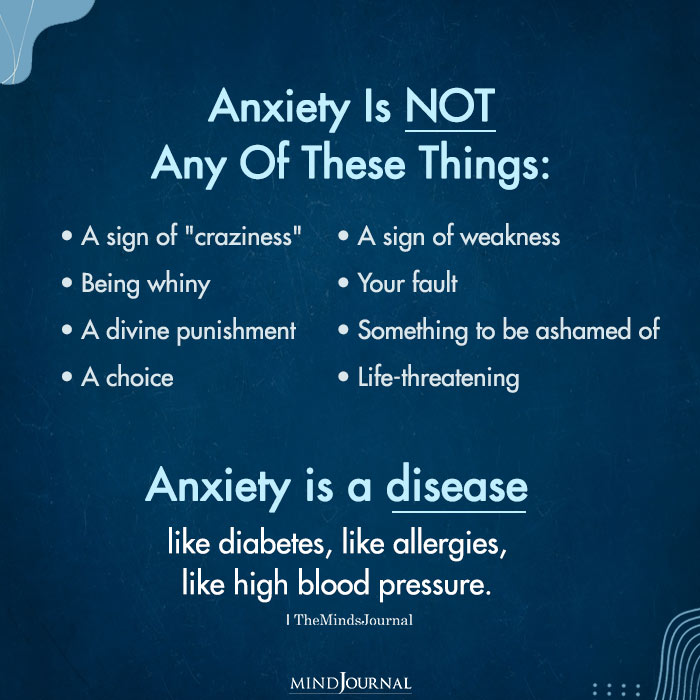
According to researchers, anxiety “manifests as a future-oriented mood state that consists of a complex cognitive, affective, physiological, and behavioral response system associated with preparation for the anticipated events or circumstances perceived as threatening.”
It is often triggered when someone falsely believes or overestimates a perceived danger or threat in a situation, which leads to excessive and inappropriate responses.
Regardless, anxiety disorders form the most common type of mental illness and often develop before or in early adulthood. It is typically influenced by genetic factors, environmental factors, and their epigenetic relations.
Related: What Is Performance Anxiety? 10 Ways To Overcome Your Fear Of Being Judged
What Anxiety Actually Feels Like
Anxiety can manifest in various ways, but the feelings associated with it are often intense and distressing. To truly understand the impact of anxiety, let’s use our imagination.
Imagine being in a room that’s slowly filling with water, and with each passing second, the water level rises, leaving you gasping for breath. That’s what anxiety can feel like — as if you’re drowning in a sea of worries, unable to find solid ground.
This deep-seated fear mirrors the all-encompassing nature of anxiety, where worries constantly pour in like an unstoppable waterfall, leaving us emotionally battered and gasping for respite.
Anxiety can also manifest itself physically, with symptoms such as muscle tension, headaches, nausea, and disrupted sleep patterns. Its emotional toll can include restlessness, irritability, difficulty concentrating, sleep disturbances and a constant state of hypervigilance.
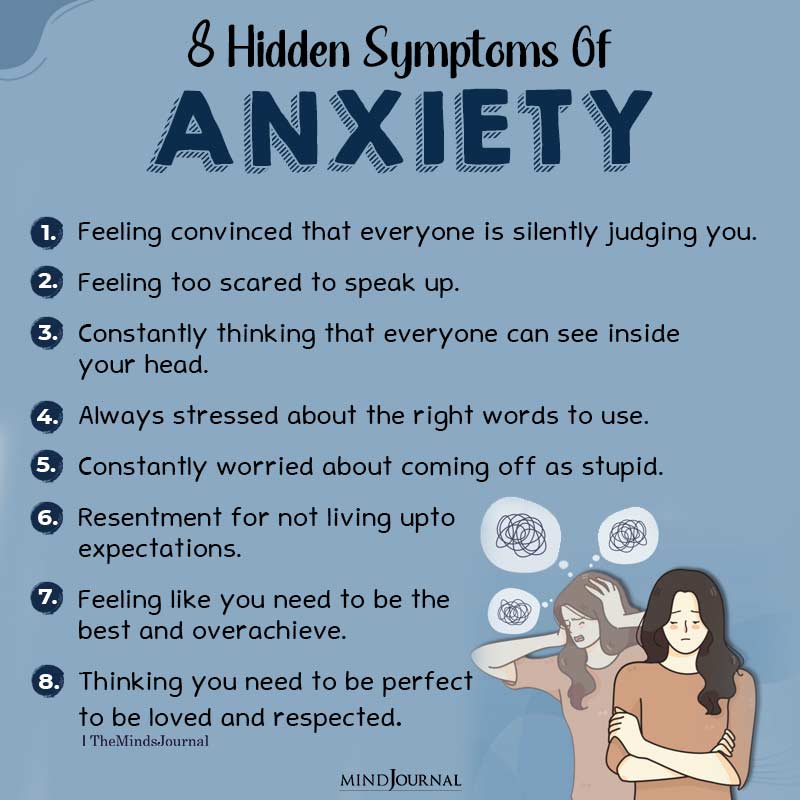
How To Become Less Anxious: 9 Tips To Deal With Anxiety
Is anxiety taking hold of your mind and your life? Here’s a few effective strategies on how to become less anxious so that you can improve your mental health and take better control over your life –
1. Embrace the Power of Deep Breathing
When anxiety threatens to consume us, the simple act of deep breathing can become our anchor in the storm. Take a moment to focus on your breath, inhaling deeply through your nose, allowing your belly to expand, and exhaling slowly through your mouth.
This intentional rhythmic breathing activates the body’s relaxation response, soothing the racing heart and quieting the mind. In fact, multiple studies have found that deep breathing can not only help to manage anxiety levels but also improve your quality of life.
“Daily deep breathing exercise (DBE) can lower resting blood pressure (BP) and reduce stress and anxiety,” states a recent study.
Related: 30+ Quotes for Depression and Anxiety That Express How You Feel
2. Challenge the Tyranny of Negative Thoughts
Anxiety often thrives on negative thoughts and catastrophic thinking patterns. To break free from this self-imposed prison, we must challenge and reframe the negative narratives that hold us captive.
To deal with anxiety, pause, question the validity of your anxious thoughts, seek evidence and counter your negative thoughts. By doing so, you empower yourself with a more balanced perspective, one that liberates you from the chains of anxiety’s tyranny.
3. Unleash the Healing Power of Exercise
Physical activity is a powerful tool in our quest to alleviate anxiety. Engaging in regular exercise releases endorphins, nature’s mood-enhancing elixir. From invigorating walks amidst nature’s embrace to the rhythmic flow of yoga or the soul-stirring beats of dance, find the form of exercise that resonates with your soul.
Embrace it as a sacred ritual, a sanctuary where anxiety dissipates, and your spirit soars. “People who perform physical activity regularly can have higher self-confidence and less anxiety and depression,” explain researchers. This is how to become less anxious.
4. Cultivate Mindfulness and Meditation
In the midst of life’s chaos, mindfulness and meditation offer us a refuge of profound tranquility. Set aside a few precious moments each day to sit in stillness, focusing on your breath and observing your thoughts without judgment.
Mindfulness and meditation are practices that cultivate present-moment awareness and promote a sense of inner calmness. With mindfulness meditation, you can develop the ability to anchor yourself in the present moment, untangling the web of anxiety’s grip on your mind.
Take a few moments each day to sit quietly, focus on your breath, and observe your thoughts without judgment. By practicing mindfulness, you can develop a greater capacity to stay grounded in the present moment, reducing anxiety’s grip on your mind.
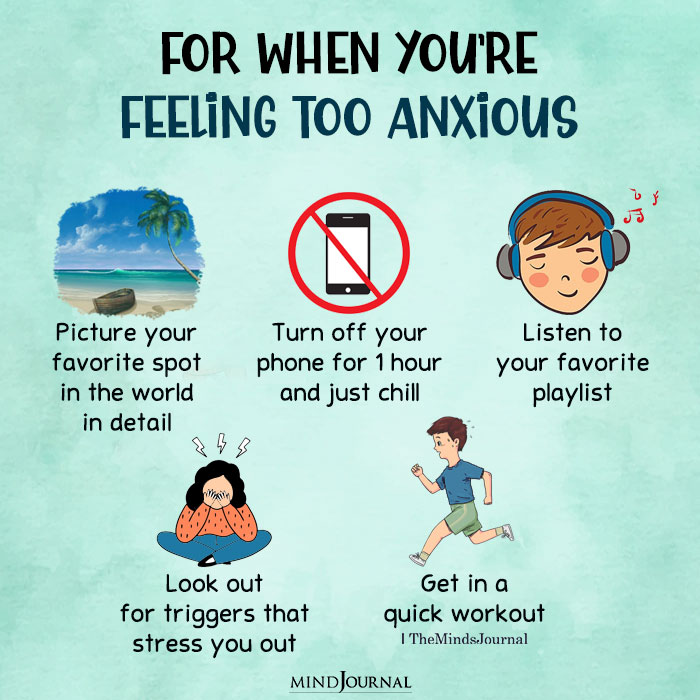
Studies show that mindfulness meditation “appears to be an effective tool to reduce anxiety in patients with Generalized Anxiety Disorder.” It can also result in less stress reactivity and improved resilience.
5. Established a Supportive Network
Building a strong support system is crucial when dealing with anxiety. Reach out to trusted friends, family members, or professionals who can provide a listening ear and offer guidance.
Sharing your fears and burdens with others who understand can provide profound relief, enabling you to gain fresh perspectives and nurturing connections along the way.
6. Prioritize the Sacred Art of Self-Care
Self-care is not a luxury; it’s a necessity, especially when it comes to managing anxiety. Carve out time each day to immerse yourself in activities that ignite joy, promote relaxation, and nourish your mind, body, and spirit.
Whether it’s losing yourself in the pages of a beloved book, indulging in a soothing bath, pursuing a creative passion, or communing with nature, let self-care be a non-negotiable sanctuary of solace. Nurturing your physical, emotional, and mental well-being is vital in reducing anxiety and restoring balance in your life.
Related: How To Be Less Nervous And More Confident? 15 Sentences To Change Your Mindset
7. Create Boundaries and Limit Stress Triggers
Anxiety often flourishes in environments steeped in stress and overwhelm. Take charge of your well-being by establishing firm boundaries, learning to say no to excessive demands, and creating a structured schedule that allows for breaks and moments of respite.
To deal with anxiety, mindfully identify the triggers that exacerbate your anxiety, and take proactive steps as it will help to minimize exposure whenever possible. This is one of the most practical tips on how to become less anxious.
8. Embrace the Healing Power of Sleep
Sleep and anxiety have a complex relationship and it plays a pivotal role in anxiety management. Prioritize creating a restful sleep environment and establish a soothing bedtime routine.
Disconnect from electronic devices, engage in relaxation techniques like reading or gentle stretching, and ensure you get an adequate amount of quality sleep each night. It helps restore your mind and body, providing a solid foundation for managing anxiety effectively. So embrace sleep as an act of self-love.
9. Seek Professional Guidance
If anxiety persists and significantly impacts your daily life, seeking professional help is a courageous and vital step towards healing. Mental health professionals, such as therapists or counselors, possess the expertise to guide you on your journey.
They can help you explore the underlying causes of your anxiety, develop personalized coping strategies, and offer evidence-based treatments tailored to your specific needs.
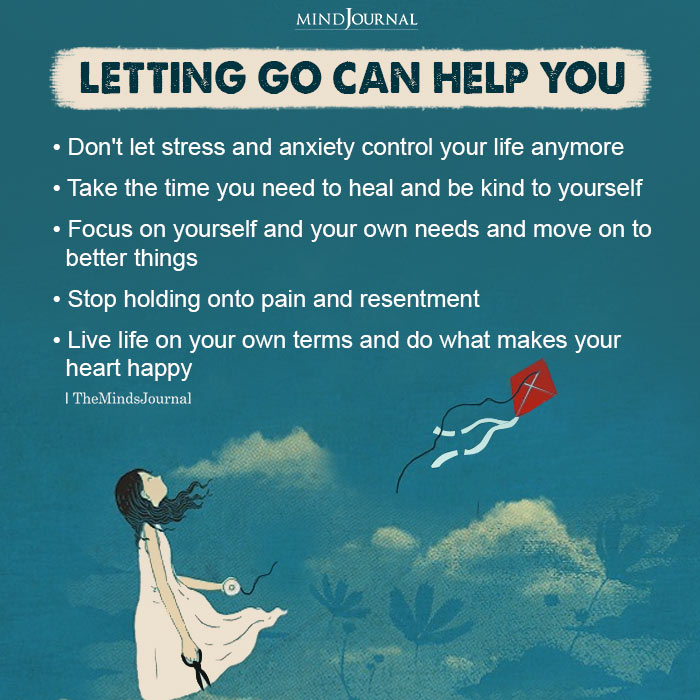
Takeaway
Anxiety may be a formidable adversary, but armed with knowledge, courage, and practical tools, you can triumph over its grip. Embrace the transformative journey of self-discovery and healing as you navigate the labyrinth of anxiety.
Now that you know how to become less anxious, celebrate every small victory along the way, knowing that each step forward brings you closer to a life infused with serenity, resilience, and profound inner peace. You deserve to embrace the boundless possibilities that await you beyond anxiety’s veil.
So, gather your strength, embark on this transformative odyssey, and emerge as the empowered architect of your serenity. Embrace the journey. Embrace the serenity that awaits.
Related: 7 Words To Overcome Your Anxiety
Frequently Asked Questions (FAQs):
How to reduce anxiety?
Engage in regular physical activity, practice mindfulness or meditation, and maintain a healthy lifestyle with adequate sleep and nutrition.
How can I stop being anxious so easily?
Implement stress management techniques like deep breathing, progressive muscle relaxation, or journaling to cope with anxious thoughts.
How to handle bad anxiety?
Explore cognitive-behavioral therapy (CBT) strategies, such as reframing negative thinking patterns, setting realistic goals, and gradually facing feared situations.
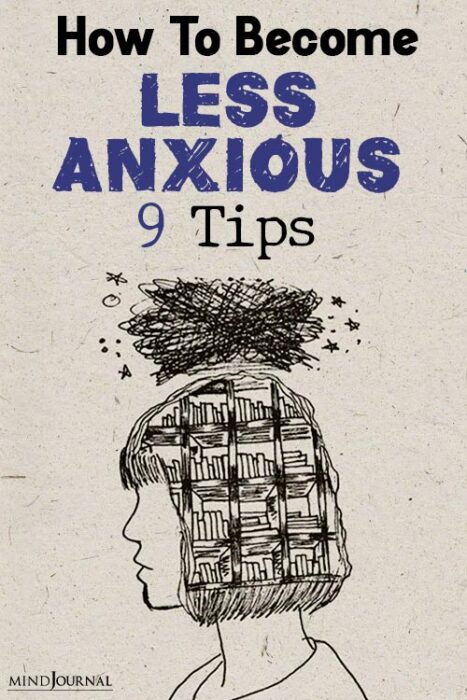
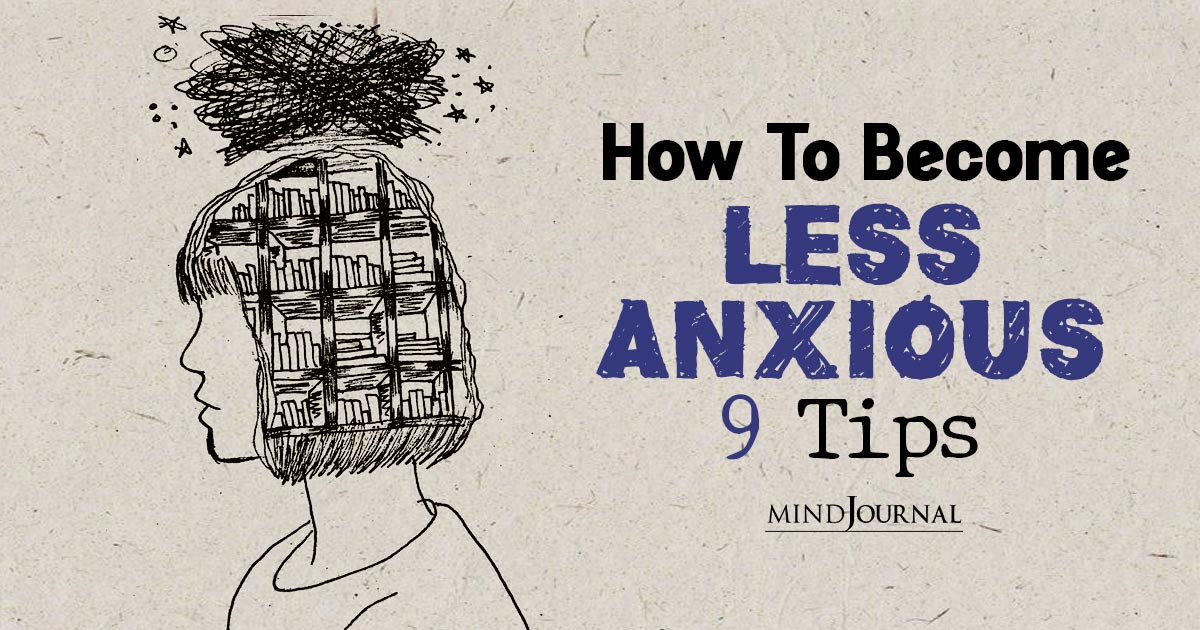







Leave a Reply
You must be logged in to post a comment.